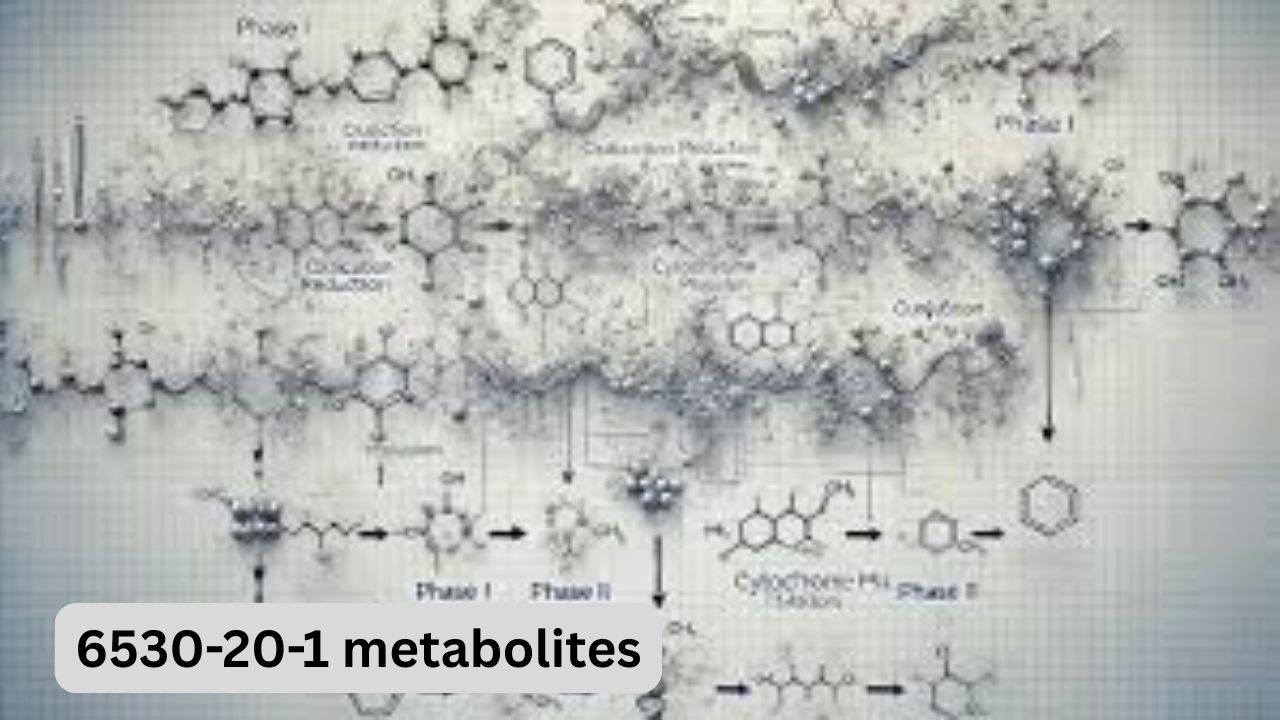A Complete Guide to 6530-20-1 Metabolites in Modern Science
A Complete Guide in Modern Science
The study of is gaining traction in the scientific community, especially in the fields of pharmacology, medicine, and biotechnology. These metabolites, which arise during metabolic transformations, are crucial for understanding how compounds behave inside biological systems. By exploring the properties and applications of , researchers can uncover valuable information for drug development, disease monitoring, and industrial innovation.
What Exactly Are 6530-20-1 Metabolites
In simple terms, are chemical entities produced when a parent compound undergoes metabolic breakdown or modification within living organisms. They may act as intermediates, end-products, or even active agents that influence biochemical pathways.
Unlike inert byproducts, some play direct roles in signaling, energy production, or cellular regulation. Others serve as biomarkers, helping researchers track the progress of treatments or detect early signs of disease.
Why Are 6530-20-1 Metabolites Important?
-
Drug Safety & Efficacy – Understanding how a drug metabolizes ensures safer dosing strategies.
-
Disease Diagnosis – Certain metabolites serve as measurable indicators of medical conditions.
-
Biotechnological Applications – Engineered organisms can produce metabolites for industrial use.
-
Environmental Science – Metabolites provide insights into the breakdown of chemicals in nature.
Key Applications of 6530-20-1 Metabolites
1. Pharmaceutical Development
In drug research, 6530-20-1 metabolites are studied to determine how medications are processed inside the body. Some metabolites are therapeutic, while others may be toxic, making this analysis essential for safe medicine design.
2. Clinical Diagnostics
Healthcare professionals are beginning to use 6530-20-1 metabolites as biomarkers. Their presence and concentration can reveal valuable details about metabolic health, organ function, or exposure to harmful substances.
3. Industrial Biotechnology
Metabolites are not limited to medicine—they are also vital in industries such as agriculture and fermentation. The role of 6530-20-1 metabolites in microbial engineering highlights their potential in producing bio-based materials and sustainable chemicals.
Methods Used to Study 6530-20-1 Metabolites
-
Mass Spectrometry (MS) – For identifying molecular structures.
-
Liquid Chromatography (LC) – For separating complex mixtures.
-
Nuclear Magnetic Resonance (NMR) – For detailed structural analysis.
-
Bioinformatics Platforms – For handling large metabolomic datasets.
Health and Medical Relevance
-
Personalized Medicine – By analyzing metabolite levels, treatments can be tailored to individual patients.
-
Toxicology – Detecting harmful metabolites prevents long-term exposure risks.
-
Metabolic Disorders – Monitoring metabolites helps detect conditions like diabetes, liver dysfunction, or genetic enzyme deficiencies.
Current Challenges in 6530-20-1 Metabolite Research
-
Complex Metabolic Networks – Metabolites rarely act alone, making research highly intricate.
-
Rapid Degradation – Some compounds break down too quickly for accurate analysis.
-
Data Overload – High-throughput technologies generate massive datasets that require advanced computational models.
The Future in Science
-
Integration with Genomics & Proteomics – Linking metabolite data with genetic and protein studies.
-
Artificial Intelligence in Metabolomics – Using AI to interpret complex datasets.
-
New Biomarker Discovery – Identifying additional metabolites for early disease detection.
-
Synthetic Biology Applications – Harnessing microbes to produce valuable metabolites sustainably.
Conclusion
The exploration of is opening new doors in science, medicine, and technology. Far from being simple byproducts, they are dynamic compounds with critical roles in health monitoring, drug safety, and biotechnological development.







